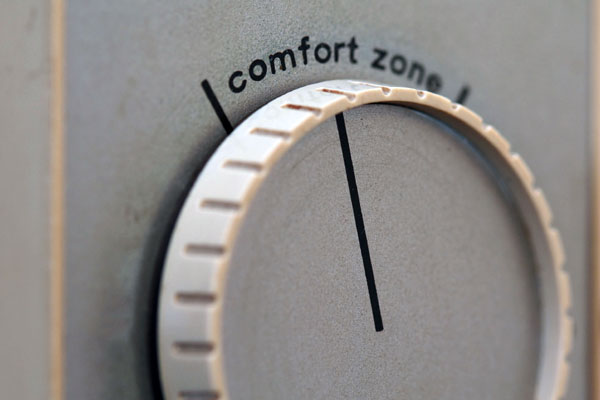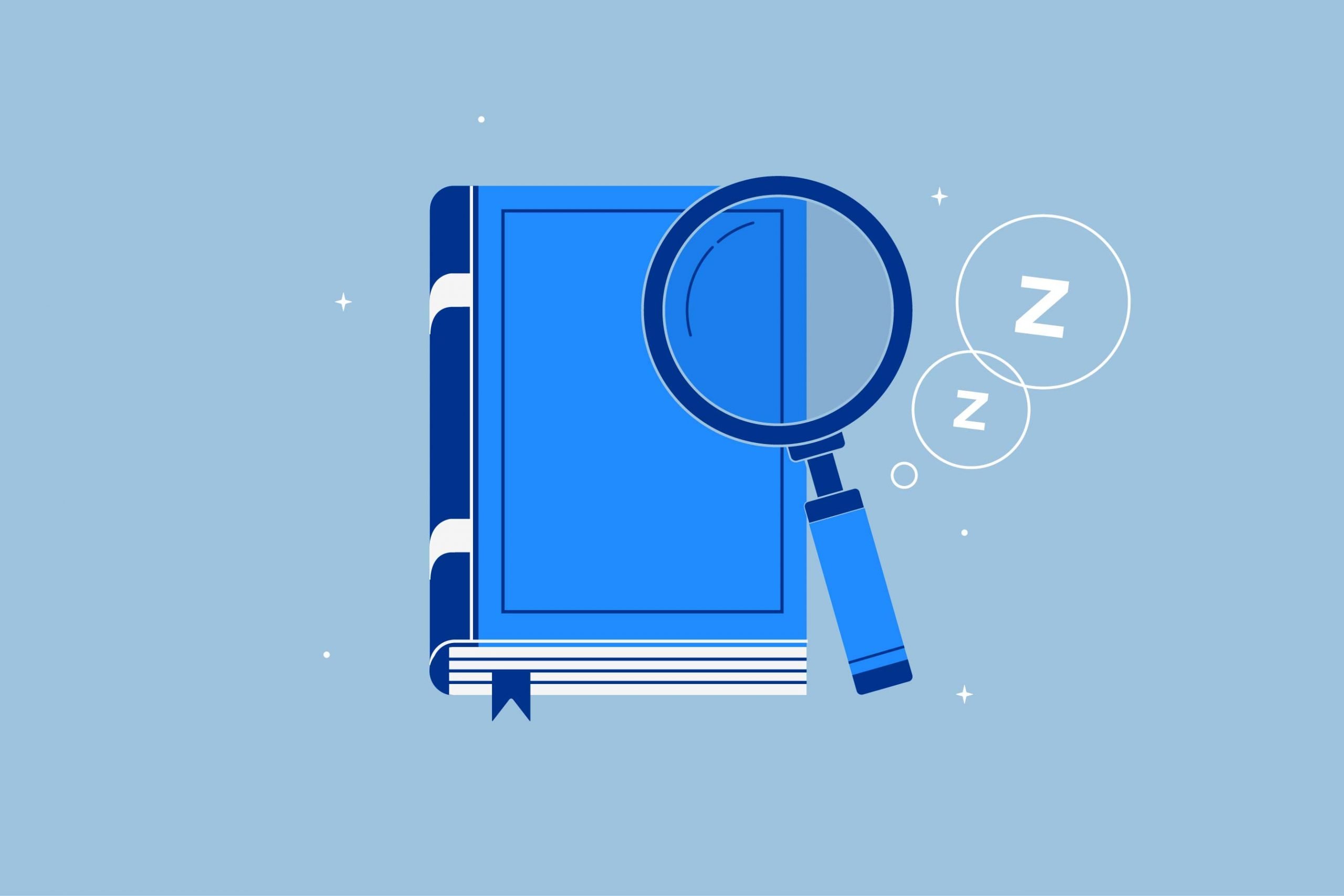If you’ve ever noticed that it’s hard to sleep when you have a sore back or other pain preventing you from getting comfortable, you’re not alone.
“What is the relationship between sleep and pain?” asks Dr. Nayantara Santhi. “Sleep deprivation impairs neural pain-inhibiting pathways that are critical for controlling and coping with pain. Lack of sleep also increases pain sensitivity due to altered pain processing in the form of habituation and sensitization. And these changes in pain processing can result in increased clinical pain.”
Connections between pain and sleep are real, and knowing how they work can be helpful. Keep reading to learn how pain and rest interact, and what you can do to sleep better.
The Sleep-Pain Relationship

Sleep is a critical and complex process that science is just beginning to understand, and recent discoveries are providing intriguing information about what goes on when the lights go out.
When we are at sleep, science has found that our bodies and biological systems are actually quite active, but in a different way from when we are awake. Our brains consolidate memories and clear out the day’s gunk, while our bodies are repairing and renewing at the cellular level.
Research in the past decade has found that sleep affects everything from immunity and weight to moods and even learning. Several of these processes are thought to work bidirectionally with sleep, meaning they both influence and are influenced by the quality and quantity of sleep we get.
The National Sleep Foundation says that 2/3 of people with chronic pain also experience sleep troubles. Acute pain can also affect sleep, such as during recovery from injury or surgery.
Of the relationship between pain and sleep, Sleep Disorder Center director David Neumeyer, MD, says, “Chronic pain is very common in the population and even more common in people who have poor sleep, and it sort of becomes a vicious cycle.”
Feeling Pain Makes it Harder to Sleep
When your body is uncomfortable, it can make your mind more alert and cause you to focus on the pain, which makes it harder to relax and drift off to dreamland.
Psychologists have found that the more one fixates on sleep, the harder it becomes to sleep. Once you do fall asleep, acute and chronic pain can also disrupt sleep throughout the night, according to some studies. For example, if you have arthritis and joint pain and roll or move in a way that hurts, it can disturb your sleep and reduce its overall quality, leaving you feeling tired the next day.
Once you do fall asleep, acute and chronic pain can also disrupt rest throughout the night, according to some studies. For example, if you have arthritis and joint pain and roll or move in a way that hurts, it can disturb your sleep and reduce the overall quality of your rest, leaving you feeling tired the next day.
A 2005 article published in the Seminars on Neurology Verified Source National Library of Medicine (NIH) World’s largest medical library, making biomedical data and information more accessible. View source journal relates that reports of daytime sleepiness and fatigue increase as well when sleep is disturbed due to pain.
A 2018 study Verified Source National Library of Medicine (NIH) United Nations agency whose stated goal is to improve the health of all. View source noted that persistent pain and disrupted sleep have a strong connection. They can affect each other in a bidirectional way. When sleep is disturbed, it can make us more sensitive to pain by lowering our tolerance for it.
This study also noted that the elderly are at particular risk for pain-disturbed sleep. A reason for older shoppers or their caretakers to look for the right mattress for seniors to promote undisturbed rest.
A 2021 study Verified Source National Library of Medicine (NIH) United Nations agency whose stated goal is to improve the health of all. View source investigated the relationship between pain symptoms and excessive daytime sleepiness (EDS) in a large group of adolescents. The results showed that frequent pain, including headaches, stomachaches, and general pain, was associated with a higher risk of EDS. This association remained even after considering factors like anxiety/depression, sleep duration, insomnia symptoms, and body mass index.
The findings highlight the importance of addressing pain symptoms to promote healthy sleep and reduce the risk of EDS in adolescents. Further research is needed to better understand the psychological and neurobiological mechanisms underlying the link between pain and daytime sleepiness in this age group.
Poor Sleep Increases Pain
Sleep deprivation is also linked with increased pain. When we are not well rested, our bodies can become more sensitive to pain, reducing tolerance levels and making pain feel worse.
Fibromyalgia is one condition closely linked with sleep and pain, and improving sleep has shown decreased reports of pain Verified Source National Sleep Foundation Nonprofit focused on educating about sleep health. View source for sufferers. Studies have found that disrupting REM sleep of healthy people produced tenderness similar to that experienced by those with fibromyalgia, and increased pain for those with fibromyalgia.
One University of Washington study Verified Source National Library of Medicine (NIH) World’s largest medical library, making biomedical data and information more accessible. View source also demonstrated that sleep disruption decreased pain thresholds, increased skin sensitivity, and increased fatigue and discomfort in healthy middle-aged women.
Other research Verified Source Medscape Serves as a resource for doctors and other healthcare professionals, providing updates on medical breakthroughs and expert pieces. View source has found that sleep apnea, which disrupts rest several times per night, is associated with increased pain, and not getting adequate rest can also impair healing, which may exacerbate pain from injuries or surgeries.A 2020 Verified Source National Library of Medicine (NIH) United Nations agency whose stated goal is to improve the health of all. View source aimed to explore the associations between sleep characteristics and pain in individuals with heart failure (HF). The results showed that insomnia symptoms, shorter sleep duration, poor sleep quality, use of sleep medications, napping, and daytime sleepiness were associated with increased pain. The relationship between pain and sleep characteristics varied depending on the presence of insomnia and sleep duration.
Lastly, a 2022 review Verified Source National Library of Medicine (NIH) United Nations agency whose stated goal is to improve the health of all. View source and meta-analysis examined the effects of experimental sleep deprivation (SD) on pain outcomes. The findings suggested that total SD reduced pain threshold and tolerance, while partial SD increased spontaneous pain intensity in healthy individuals.
Sleep fragmentation or interrupted/broken sleep was associated with increased sensitivity in the peripheral and central nervous system. Limited evidence was found regarding the effects of SD on pain in individuals with chronic pain. The study concluded that further research is needed to better understand these relationships, particularly in clinical populations.
What You Can Do

If you find that pain is keeping you up at night, there are a few things you can do to get comfortable and get some rest.
Which Came First?
Since sleep and pain work bidirectionally and often occur together, experts suggest determining which came first – the pain or the sleep deprivation – so you can target the initial symptom.
Managing Pain
There are dozens of causes and sources of pain, and as many ways of managing symptoms. The right path to reducing pain will depend on the cause of your pain, as every person will have unique considerations.
- Discuss symptoms with a doctor. If you have chronic pain or pain that is affecting your life, you should always consult with your doctor or health professional first. They can identify any underlying conditions and find the best options for treating your specific situation.
- Over-the-counter solutions. If you don’t think your pain is severe enough to seek out a doctor, OTC medications could provide some short-term relief. RXList.com offers helpful guides on types of pain and medications.
- Flat isn’t always best. With some conditions, sleeping flat may be uncomfortable. For example, the Mayo Clinic suggests acid reflux can be eased by elevating your upper body, and lower back pain may be reduced by elevating your knees. Use wedge pillows, towels, or an adjustable bed to achieve a position that works for you.
- Try stretching and strengthening exercises. Some types of pain may be eased by stretching out tight muscles or strengthening weak ones. There are quite a few good guides online for back pain stretches, for example. Your doctor can tell you if this is a good option for your situation and give guidance on specific stretches to include.
- Prioritize healthy sleep habits. Since sleep plays a role in pain management, it should become a top priority in your schedule. Banish bad habits like electronics in the bedroom and inconsistent sleeping hours.
Improving Sleep

Not everyone who experiences pain will find it affects their sleep, but if sleep deprivation is contributing to your symptoms, it can be helpful to work on healthy sleep hygiene.
Here are the key tenets of good sleep:
- Plan to get a full eight hours. Allow yourself enough time in the day to get adequate rest, including time to relax and prepare for sleep and enough time to fall asleep so you aren’t worrying about the clock.
- Make sure your mattress is supportive. If you awake with painful pressure points or back pain, your mattress may be a cause especially if it’s over eight years old. The most comfortable mattress is one that supports your back’s natural alignment while also cushioning pressure points.
- Avoid stimulants in the afternoon. Caffeine can have a lasting effect on alertness, so if you are having difficulty sleeping, avoid it, especially after the early afternoon hours. Chocolate, soda, and tea are all sources of stimulants, and even some pain pills include caffeine as well.
- Eat a balanced diet. Several vitamins and minerals play a role in rest. Eat a variety of fresh vegetables, fruits, complex carbs, lean proteins, and other sleep superfoods.
- Start a good night routine. Set the mood for sleep by establishing a wind-down routine with things that make you relax. This could include a warm bath, gentle stretching, reading, or any other low-stimulation activity that clears your mind.
- Keep regular hours. Going to bed and waking at the same time every day, even on the weekends, can help normalize sleep patterns and improve your rest.
Researchers are just beginning to understand the complex nature of sleep, and new links are being uncovered all the time. While we don’t yet know exactly how sleep and pain are connected, it’s clear that a relationship exists.
Adopting good sleep hygiene habits before problems pop up and discussing pain early with your doctor can help keep minor issues from developing into chronic sleep problems, and prevent the vicious cycle of sleep and pain from robbing your rest.
Does pain keep you up at night? How do you handle your pain? Does your mattress play a role in your pain management?
About the author
Rosie Osmun, a Certified Sleep Science Coach, brings a wealth of knowledge and expertise to the health and wellness industry. With a degree in Political Science and Government from Arizona State University College of Liberal Arts and Sciences, Rosie's academic achievements provide a solid foundation for her work in sleep and wellness. With over 13 years of experience in the beauty, health, sleep, and wellness industries, Rosie has developed a comprehensive understanding of the science of sleep and its influence on overall health and wellbeing. Her commitment to enhancing sleep quality is reflected in her practical, evidence-based advice and tips. As a regular contributor to the Amerisleep blog, Rosie specializes in reducing back pain while sleeping, optimizing dinners for better sleep, and improving productivity in the mornings. Her articles showcase her fascination with the science of sleep and her dedication to researching and writing about beds. Rosie's contributions to a variety of publications, including Forbes, Bustle, and Healthline, as well as her regular contributions to the Amerisleep blog, underscore her authority in her field. These platforms, recognizing her expertise, rely on her to provide accurate and pertinent information to their readers. Additionally, Rosie's work has been featured in reputable publications like Byrdie, Lifehacker, Men's Journal, EatingWell, and Medical Daily, further solidifying her expertise in the field.
View all posts





